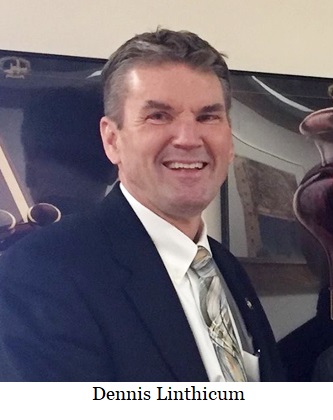Oregon’s use of QALY criticized by U.S. Health and Human Services
Remember the 2008 campaign for President when Sarah Palin was made fun of for speaking out about death panels? She was referring to the Medicaid qualification guidelines. In 1992, Oregon submitted a Medicaid waiver application relying on a Quality-Adjusted Life-Year (QALY) formula to prioritize coverage and services for those whose lives were deemed of “higher value.”
In 2011,
HB 2100 passed as a pharmacy bill that also establish the Health Evidence Review Commission (HERC) to develop clinical practice guidelines in its prioritized list of services to encourage effective and efficient medical evaluation and treatment. They were directed to report to the Oregon Health Authority to prioritize health services for the Oregon Health Plan (OHP). It called for HERC to develop a medical technology assessment process opening the door to use QALY in the Oregon Health Plan.
The purpose of HERC was to establish benchmark rates to achieve the goal that Oregonians have access to high quality, effective health care at an affordable cost, whether that care is purchased by the state or by the private sector. The bill seemed innocent enough that it passed unanimously seemingly unaware they were creating the foundation for "death panels." It was also the narrative used as the foundation for Measure 111 in 2022 when voters passed universal health care not realizing they were opening a permanent door for priority rating – the same year the Legislature gave free healthcare to anyone in the world who comes to Oregon.
Oregon has used a QALY formula over the last 22 years to determine what would and would not be covered by the Oregon Health Plan. Even the U.S. Department of Health and Human Services thinks it is a flawed scoring system used by economists to determine cost-effectiveness of proposed medical treatments. Healthcare payers use the scores to determine who is eligible for healthcare resources, similar to auto insurers using credit scores for issuing coverage.
Based on clinical and practical analyses, QALY calculations measure how much a proposed treatment may improve someone’s quality of life
by arbitrarily weighing how long that person has spent in different states of health.
The formula uses a year of “perfect health” as worth 1, while a year of “less than perfect” health—such as living with a disability or chronic illness—is worth less than 1. Death equals zero. The final QALY score equals the number of years a treatment may extend a patient’s life multiplied by determined quality of life.
In 2017, Oregon removed an explicit reference to QALY from its cost-effectiveness framework—but the Health Evidence Review Commission, which guides the Oregon Health Plan’s benefit decisions, continues to rely upon QALY-driven prioritization scores.
Disability Rights Oregon (DRO) has been working to get the Oregon Health Authority to stop using QALY scores since the inception of the Oregon Health Plan, with no success. They testified that QALY expands existing healthcare inequities by perversely impacting or denying care to people with chronic disease or disabilities, and older adults. Because of the greater value QALY places on medical treatments that extend the lives of people without disabilities than on those that benefit people with disabilities, these groups are deemed “less worthy” to receive insurance coverage for new medicines or treatments. The illegalities of QALY use are well documented, and The National Council on Disability has repeatedly warned it undermines and violates major U.S. disability and civil rights laws—including the Rehabilitation Act and the Americans with Disabilities Act.
Senate Bill 1508 is the first step in limiting the use of QALY by the Oregon Health Authority. It states, the authority may not consider a quality of life in general measure, either directly or by considering a source that relies on a quality of life in general measure. It also requires the Health Evidence Review Commission to not rely upon any quality of life in general measures, either directly or by considering research or analysis that relies on a quality of life in general measure including value of a service; they must receive public comment on selection of vendor that provides research or analysis tool; and allow comments on the research or health economic measures to be relied upon in the commission’s decision-making.
A D V E R T I S E M E N T

A D V E R T I S E M E N T
Has the “death panels” run its course for such a change in how to cut medical costs? Factor in the passing of universal health care and free medical care for an increasing number of unhealthy immigrants, affirming care transitioning mistakes, and increased suicides. QALY may no longer serve their agenda. Plus, the U.S. Department of Health and Human Services criticized Oregon’s use of QALY because it ‘‘in substantial part values the life of an individual with a disability less than the life of an individual without a disability. This premise is discriminatory and inconsistent with the Americans with Disabilities Act.”
But, SB 1508 isn’t without tradeoffs. Senator Dennis Linthicum (R-Klamath Falls) points out that the bill also caps insulin at $35 a vial from insurance providers, which has the effect of squeezing other plan participants to meet the difference in cost that directly helps patients but doesn't solve the problem of the high cost. In other words, we only moved the problem from one spot on the map to another, as manufacturers enjoy continued market protection.
One thing that seems to be agreed upon is that QALY types of scores have no place influencing what conditions and treatments the Oregon
Health Plan will cover. SB 1508 is headed to the House floor for its final vote.
--Donna Bleiler| Post Date: 2024-02-22 10:26:51 | Last Update: 2024-02-22 16:02:38 |







